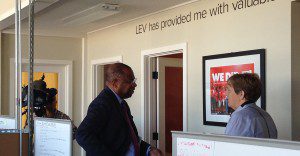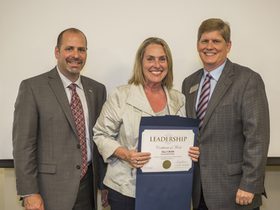In a decision released today, the Washington Supreme Court ruled that I-1053, the law that requires a two-thirds majority to pass revenue in the legislature, is unconstitutional. This ruling is a huge win for kids and schools.
LEV and its partners challenged the law in court because it hamstrung our legislators’ efforts to uphold their paramount duty to invest in the quality public schools our children need to succeed in life. Our kids suffered at the hands of a small minority of legislators who could veto any new revenue options for education.
This decision comes at the perfect time–our legislators are working right now to develop a plan to fully fund K-12 education. This ruling puts all options on the table. We all want what is best for our students, but year after year, thanks in part to Initiative 1053, the legislature has not provided the funding to pay for basic resources need to educate our students.
We hope today’s Supreme Court ruling provides the tools and opportunity for the legislature to craft a funding plan that ensures that there is ample, equitable, and stable funding for education.
Washington citizens have consistently supported initiatives that would make it difficult to raise taxes, including I-1185, an initiative similar to I-1053 that passed this fall. We believe today’s ruling applies to I-1185 as well.
While voters believe that taxes should be difficult to raise, it does not mean they believe it should be impossible. When voters can see their money well-spent, they come out strongly in favor of providing for their schools. Earlier this month, voters in school districts across the state committed more than $1.7 billion to their local schools through school levies. Further, during the past two years, local voters have approved $4.3 billion in local levy funding. The levies were approved with a large majority–an average 63 percent of the vote–in 204 school districts across the state.
Today’s Supreme Court ruling is another step in the right direction to making sure all of our state’s students have access to an excellent education that is amply, equitably and stably funded.










